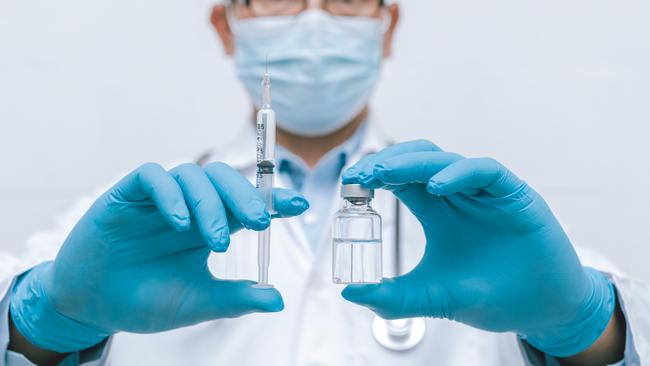CSL Seqirus accelerates the release of flu jabs ahead of a ‘dire season’ as infections soar
More than 8 million influenza vaccines have hit public and private providers as Australia’s biggest health company CSL predicts the worst season in a decade.

Flu season has come almost two months earlier this year. Almost 13,000 Australians have become infected, as the nation enjoys its first autumn without pandemic restrictions such as mandatory mask wearing and isolation.
Australia’s biggest health company, CSL, has warned of the worst flu outbreak in a decade this year, after social distancing measures in the past three years suppressed infections.
CSL’s vaccine division, Seqirus (pronounced “secure us”) has accelerated the release of its shots for the current strains of influenza, and will produce more than 8 million doses for the private market and government-funded national immunisation program.
CSL Seqirus influenza director Natasha Rees said while vaccination for influenza normally began in April to give people more coverage during the season, the company had provided doses earlier this year.
“Flu is unpredictable so we never know exactly when the season might begin or when cases might peak,” Ms Rees said.
According to the latest data from the Department of Health, there have been more than 12,783 confirmed flu cases; this level wasn’t experienced until early May last year.
Meanwhile, international arrivals hit 1.61 million in January – the most since pandemic travel restrictions were imposed in February 2020 – creating a greater risk of importing the virus.
CSL Seqirus medical director of vaccines and biosecurity Julianne Bayliss said that seasonal flu could be sparked by travellers visiting, or returning, from the northern hemisphere.
“The volume of cases we’re seeing so far this year is more comparable to the patterns of circulation we saw prior to the Covid-19 pandemic and the recent increases in international travel may be contributing,” Dr Bayliss said.
“With cases already on the increase in 2023, it’s important that Australians talk to their GP or pharmacist about flu prevention options including vaccination.”
CSL Seqirus has been a standout performer for the $137bn company. Sales of its new cell-based vaccine, Flucelvax, vaccine surged 28 per cent to $US599m ($895.21m) in the six months to December 31 as demand soared during the northern hemisphere flu season.

And sales of its adjuvanted vaccine, Fluad, leapt 7 per cent to $US845m.
While Covid-19 has dominated headlines in the past three years, CSL’s former chief executive, Paul Perreault, last month said most people took influenza for granted, despite it killing 290,000 to 650,000 globally each year and infecting millions of others, according to the World Health Organisation.
“We saw low levels of influenza circulating during the pandemic. This has reversed and we are seeing the highest and earliest prevalence of influenza-like illness in nearly a decade,” Mr Perreault said.
“Population immunity against influenza is also low, increasing the importance of vaccination.”
Such is the ongoing risk of influenza and other respiratory illnesses that Moderna – which uses messenger RNA technology – is expecting to release a single-shot vaccine for Covid-19, influenza and potentially RSV by the middle of this decade.
This was despite its influenza vaccine delivering mixed results in phase 3 clinical trials. While its jab against A strains of the flu generated a strong immune response, it failed to show its shot for B strains was at least as effective as existing approved vaccines.
Furthermore, 70 per cent of trial recipients reported adverse reactions – most of which were mild – versus 48 per cent dosed with a comparator vaccine. The differential is considered too great, according to market insiders. For example CSL’s cell-based influenza vaccine delivered a less than 1 per cent difference in adverse reactions.
But Moderna chief medical officer Paul Burton said the development of an mRNA influenza vaccine was an iterative process and the company was able to modify the jab more quickly than conventional shots.
“What we’ve been able to do is tweak the sequencing, or antigen, and go straight back out into clinic and that is a remarkable feature of the mRNA platform. It’s so agile and quick,” Dr Burton told The Australian last month.
“If you think about doing that in any other platform, you have to retool, make a new antigen. It’s just going to take a long time.”
The global influenza market is set to almost double by 2029, surging from $US7bn to $US13.58bn. Companies have been jostling to capitalise on the growth.
CSL is spending $800m in building a cell-based vaccine factory in Melbourne’s north, replicating a similar facility it has at Holly Springs in the US.
Meanwhile, Sanofi has partnered with the Queensland government to build a $280m biomedical research centre focused on developing mRNA vaccines.




To join the conversation, please log in. Don't have an account? Register
Join the conversation, you are commenting as Logout